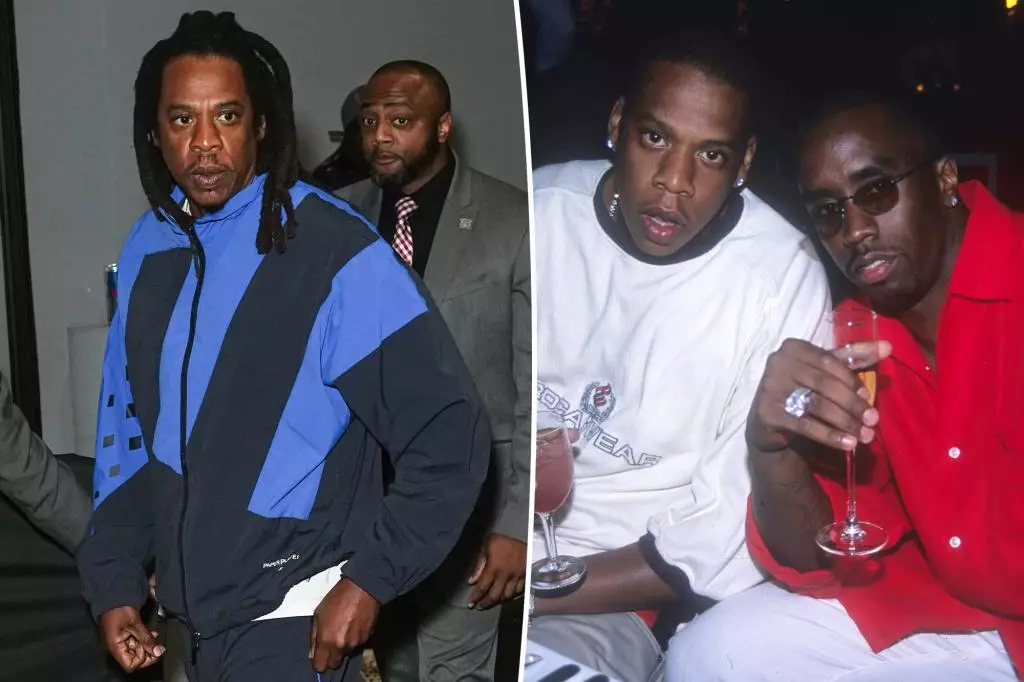In a significant ruling by Judge Analisa Torres, the New York court has permitted a rape accuser to continue her lawsuit against music moguls Jay-Z, also known as Shawn Carter, and Sean “Diddy” Combs, with the decision to maintain her anonymity during the legal proceedings. This case, which dates back to allegations of a horrific incident during the 2000 MTV Video Music Awards afterparty, exposes the complexities of sexual assault cases, especially when they involve high-profile figures. Judge Torres articulated her decision by highlighting the vulnerabilities of the plaintiff, who reportedly suffers from severe emotional distress stemming from her allegations. The court noted the necessity of weighing the various interests at hand in a sensitive manner.
The judge’s emphasis on the plaintiff’s mental health conditions—depression, post-traumatic stress disorder (PTSD), and a seizure disorder—underscores the multidimensional impact of sexual violence. It raises critical questions about the legal system’s responsibilities in protecting those who come forward with such harrowing allegations. The decision to allow her to proceed as “Jane Doe” illustrates a growing recognition within the judicial system of the importance of safeguarding the well-being of individuals who are often coerced into silence by societal pressures and fears of retaliation or public shame.
This reinforces the notion that anonymity can play a pivotal role in encouraging survivors to step forward, potentially leading to more cases being reported and prosecuted. However, this also poses challenges for defendants who argue that their reputations are being unduly tarnished without the transparency that public naming can provide.
Judge Torres did not shy away from criticizing the defense’s approach, particularly the combative nature of Jay-Z’s legal counsel, Alex Spiro. The court observed that the “relentless filing of combative motions” filled with inflammatory rhetoric wasted judicial resources. This criticism points to a broader concern about the tactics often employed by high-profile defendants—such as aggressive legal maneuvering and public relations strategies—that can undermine the integrity of the judicial process. The judge’s refusal to expedite proceedings merely based on defense demands illustrates a firm stance against tactics that prioritize speed over careful consideration.
Such dynamics not only influence the progress of the case but also contribute to the spectacle surrounding it, drawing media scrutiny and public interest. As seen in this case, the interplay between legal strategies and public perception can intricately affect the narrative surrounding sexual assault allegations.
The allegations made by the plaintiff are severe, detailing a traumatic event that allegedly involved both Jay-Z and Diddy during her teenage years. According to the accuser, she was underage at the time, making the grave nature of the claims even more poignant. The supposed incident, where substances may have impaired her consent, raises red flags about the accountability of powerful figures in the entertainment industry regarding the treatment of women.
Simultaneously, it begs the question: how often are such serious allegations dismissed or overlooked due to the influence and power of the accused? Jay-Z’s vehement denial of the allegations characterizes a common response among prominent figures who may feel their reputation is in jeopardy. His branding of the lawsuit as “cynical and calculated” reflects a deflection strategy often employed in such cases, whereby the accused aim to undermine the credibility of the plaintiff rather than address the points raised directly.
Adding another layer to the narrative is Diddy’s current legal predicaments, including charges of sex trafficking and racketeering. This fortuitous intersection of high-profile legal battles speaks to a systemic issue surrounding the culture of silence and complicity that can pervade the entertainment industry. Diddy’s representatives have previously claimed that the lawsuits against him are shameless attempts at obtaining financial gain through sensationalized claims.
The cumulative effect of these ongoing legal entanglements highlights a crucial moment in the societal discourse surrounding sexual violence and accountability. With the rise of the #MeToo movement and increasing societal sensitivity toward survivors’ experiences, the ramifications of these cases extend beyond the courtroom. They propel discussions on the necessity for reform, and the need to hold powerful individuals accountable for their actions while simultaneously caring for the emotional and psychological safety of victims who seek justice.
The ongoing litigation against Jay-Z and Diddy reveals the intricate web woven by legal rights, societal pressures, and individual vulnerabilities. As the case evolves, it will serve as an essential litmus test for the judicial system’s engagement with sexual assault allegations against high-profile figures. The intersections of anonymity, mental health, and aggressive legal tactics underscore the critical need for a more compassionate judicial approach that balances the intricacies of justice while prioritizing the welfare of those courageously coming forward to share their stories.


Leave a Reply